Where would the PS1 be without RPGs? It’d no doubt still be a massive seller thanks to bandicoots, clones, and halfpipes, but half the cultural institution it is today? We’re not so sure.
The original PlayStation saw some RPG releases from the very beginning, including Beyond the Beyond, but it wasn’t until Final Fantasy VII became a killer app for the PS1 that publishers began releasing a slew of RPGs for the console. We’re talking about 400+ titles, with at least a couple dozen being among the best PlayStation 1 games overall. With how long games take to make these days, this will simply never happen again.
Obviously, Square Enix (then simply known as Square) dominates any list that talks about the best RPGs on the PS1, but you’d be surprised just how many different sorts of RPGs they made, to say nothing of the extraordinary releases from Working Designs, Capcom, Konami, and even Sony themselves. RPGs had a golden age on this console, and is it fair to say it’s never been quite this exciting or varied in the years since?
So, let’s celebrate this wonderful, weird, and expansively deep piece of PS1 history with a look at the 20 best PS1 RPGs of all time.
20. Diablo

Developer: Climax Studios
Publisher: Electronic Arts
A hit on PCs in 1997, Diablo coming to the PlayStation was a pretty big deal in 1998.
While the iconic action RPG series didn’t offer online multiplayer like its PC brethren, it did offer players a pretty complete experience in the Kingdom of Khanduras. The PS1 port even threw in some fun features unique to the release, including a more zoomed-in view of the action, environmental effects, and even the ability to speed up travel from one destination to the next.
With the release of Diablo IV in 2023, you might be tempted to revisit the classics. Go for it. Despite its age, the original Diablo for the PS1 is still a lot of fun to play. While it’s a million miles away from the best way to play it these days, the game hasn’t aged a day where it really counts, proving there were several different types of RPGs that made a legendary splash on Sony’s smash console.
19. Brave Fencer Musashi
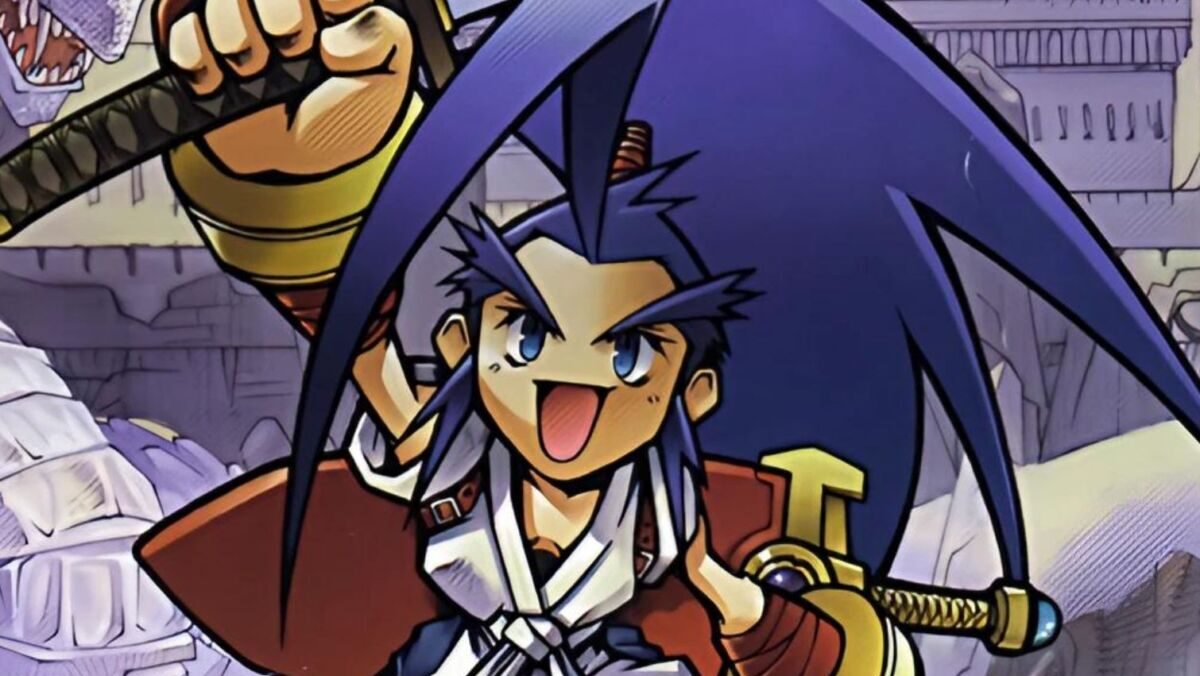
Developer: Square
Publisher: Square
Remember when Square was doing cool stuff like Brave Fencer Musashi, and not silly nonsense like doubling down on something as bottomlessly awful as NFTs?
A game many no doubt took a chance on because it came with a demo of Final Fantasy VIII, Brave Fencer Musashi may prove to be a little too light on the RPG elements for some, but we love its basic genre elements being married to some of the most satisfying action in the console’s entire library. Furthermore, those action game touches require a more methodical approach than you might get with other action RPGs.
Brave Fencer Musashi is a pretty unique experience unto itself, offering a strong narrative and world alongside touches of humor and genuinely moving drama. It’s also one of few JRPGs of the time to offer voice acting. The gorgeous pre-rendered backgrounds and addictive gameplay made for an absorbing experiment from Square, and at least we got one sequel in 2005 for the PS2.
18. Mega Man Legends 2

Developer: Capcom
Publisher: Capcom
How about a forgotten PS1 RPG that came out after the PS2 was already a thing?
Capcom took their little blue hero into new territory with the release of Mega Man Legends in 1999. Mega Man Legends 2 continued the story and action RPG construct but managed to improve upon the original in every possible way. The gameplay was way more fluid. The world to explore was bigger. It was even a stronger story, returning characters like Mega Man and Roll, as well as the absolutely charming Tron Bonne and her air pirate cohorts.
Mega Man Legends 2 has a lot of appeal in its visual style and narrative touches. There’s also just something immensely satisfying about the RPG elements of upgrading your weaponry and equipment, while exploring a multitude of dungeons to grab loot, battle bosses, and bop along a likable story. Even the control scheme for Mega Man Legends 2 is considerably smoother and less frustrating the second time around.
17. Castlevania: Symphony of the Night
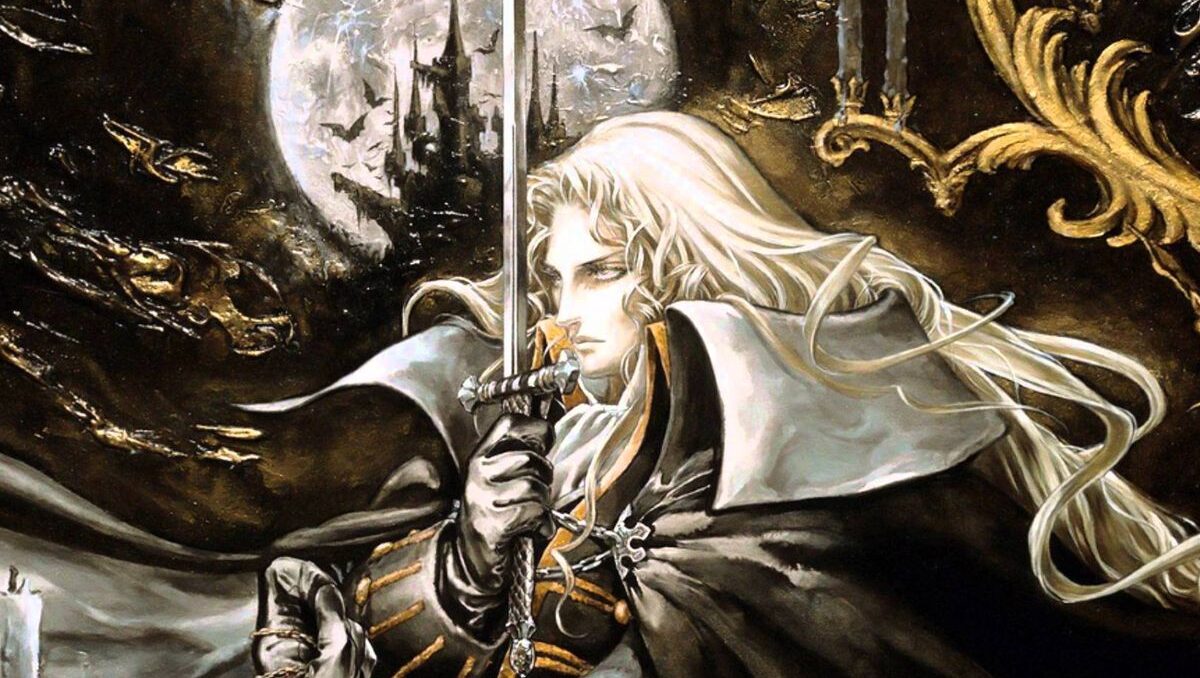
Developer: Konami
Publisher: Konami
Castlevania: Symphony of the Night is one of the best PS1 games of all time — there’s simply no denying that. The only reason why it isn’t further up our list is because there are other games on the OG PlayStation that better represent the traditional RPG experience as we like to think of it. But as far as action RPGs are concerned, Symphony of the Night is one of the best of its kind.
The first Castlevania game to introduce serious RPG elements in the first place, Sympathy of the Night puts players in the role of Dracula’s son, Alucard. You’ve arrived at the castle of your father, and you’re going to get some answers while exploring labyrinth environments, battling a variety of monsters, and earning enough experience and power to find the missing Richter Belmont and destroy Dracula once and for all.
There’s one of the franchise’s greatest ever stories being told here, depth within the profoundly challenging obstacles and enemies, and some of the best 2D graphics ever developed. Symphony of the Night is a masterpiece through and through.
16. Breath of Fire III

Developer: Capcom
Publisher: Capcom
Both Breath of Fire III and Breath of Fire IV are among the best PS1 RPGs of all time, but with room for only one on this ranking, we’ll give the nod to Breath of Fire III. Its sprawling narrative is one of the best stories ever created for an RPG, and the characters are so likable, it’s easy to want to follow them to the end.
Picking up with the story of Ryu and his efforts to learn more about his people, The Brood, of which he is the only one remaining, Breath of Fire III represented a culmination of an epic, exceptional plot. Returning to Ryu gave Breath of Fire a deeper connection to its past entries.
Featuring pretty good voice acting for the time, and the kind of graphics that are basically timeless, Breath of Fire III also has great characters beyond Ryu. There’s a sense of fun in this game that comes through in its aesthetics, gameplay, and ultimately in its powerful ending. It’s really past time that we got a new Breath of Fire, Capcom.
15. Star Ocean: The Second Story
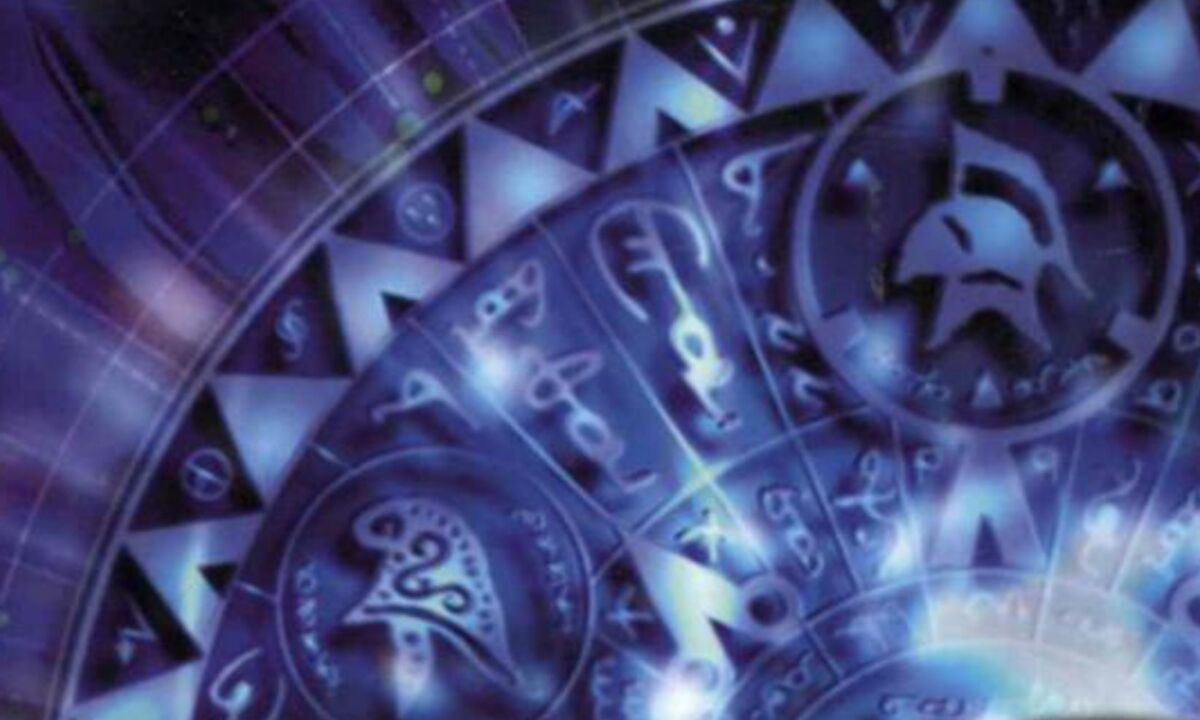
Developer: tri-Ace
Publisher: Enix
Star Ocean: The Second Story made a bigger meal than most out of its sidequests, offering a unique and engrossing “Private Action” system that allows characters to diverge from the main quest in odd little solo adventures.
It adds further depth to a game that already lets you choose between two characters as the human Claude or Nedian being known as Rena and offers some 80 different endings. There’s a variety of different skills to learn, as well, including cooking, writing, and making medicine. The real-time combat is also engaging, with plenty of different ways of building your characters up over time, and figuring out the best synergies for combos is as much fun as it is in something like Tales of Arise.
In short, Star Ocean: The Second Story is really winning in every way that matters to an RPG. There’s a remake for the PS4, PS5, Nintendo Switch, and PCs, if you want to discover for yourself why The Second Story is one of the many PS1 RPGs that deserves a little more love. That goes for Star Ocean in general — it may never achieve absolutely gigantic success, but those who love it know exactly why.
14. Grandia

Developer: Game Arts
Publisher: Sony
A lot of RPGs feature children who don’t particularly feel like they’re actually children. One of the many ways Grandia, originally released on the Sega Saturn before getting a PS1 release in 1999, feels like a refreshing change of pace from many similar titles of the era is in how its young characters truly feel young.
Justin is a young adventurer who dreams of exploring the uncharted parts of a world that insists there aren’t any. Feena is a heroic young woman with her own aspirations. This is a considerably more lighthearted story than many of the PS1 RPGs we’re discussing here, and that’s reflected beautifully in the vibrant, energetic world in which Justin and Feena travel. There’s an enthusiasm to Grandia that really connects you to the plot and characters.
However, Grandia also offers a pretty stiff challenge, particularly in its final boss. Thankfully, the game’s combat system, a riff of sorts on the ATB system of Final Fantasy, at least gives you an even playing field. If you want to find out just how grand Grandia is, the recent remastered collection of the first and second games for modern systems might be just what you need.
13. Final Fantasy Anthology

Developer: Square
Publisher: Square
While collections and compilations are normally disqualified from our rankings, Final Fantasy Anthology is a special exception. This was after all the game that finally brought Final Fantasy V, AKA the SNES-Final-Fantasy-Game-That-Only-Japan-Got, to western audiences and beyond. With its job system and extremely difficult degree of challenge, Final Fantasy V was on every RPG fan’s wishlist, and Anthology finally made it possible to play without going to a fan translation.
Plus, on top of Final Fantasy V and its story of Bartz and his friends protecting the four elemental crystals from a madman sorcerer named Exdeath, Final Fantasy Anthology included the essential classic Final Fantasy VI. Fans had probably already played this on the SNES, but it was nice to see the last two SNES entries get a PS1 release with new CGI openings and endings, and also one of the most unbelievable moments in RPG history on a new system.
But the real reason to get Anthology is the fifth game, in our opinion. The wait for Final Fantasy V was truly worth it, and that’s why Final Fantasy Anthology deserves our affection.
12. Dragon Warrior VII
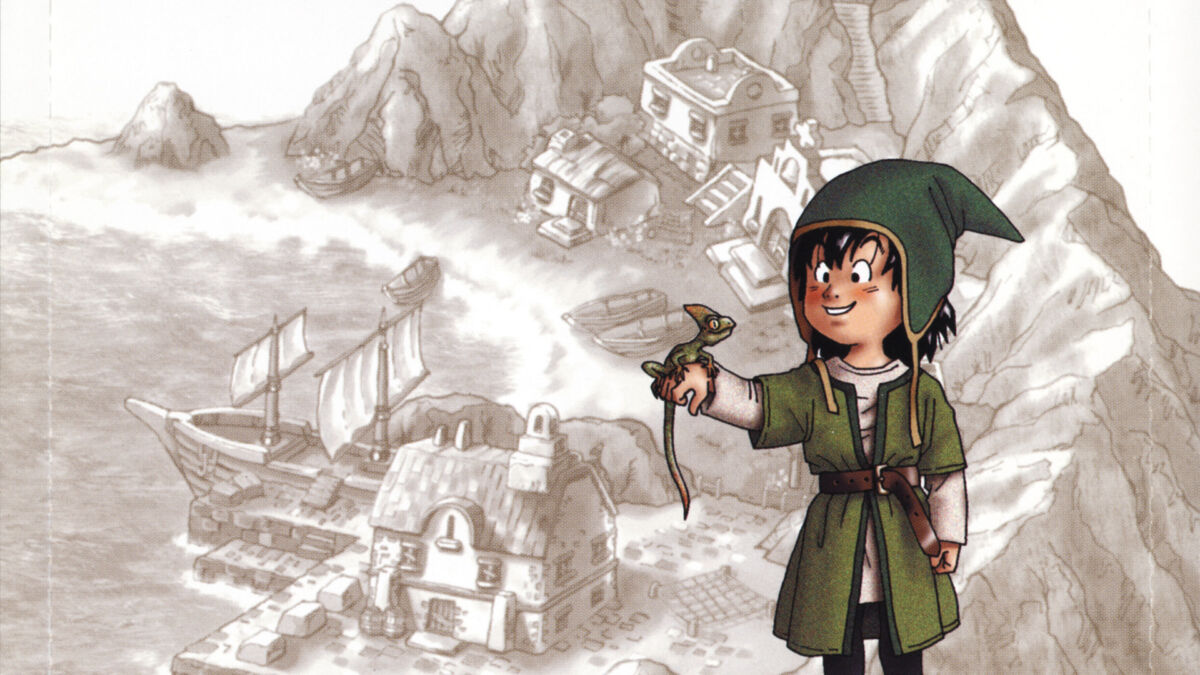
Developer: Enix
Publisher: Enix
Starting from the point in which you are a young boy living in a small town on the island of Estard, Dragon Warrior VII takes you on a long, long, long journey. To simply complete the main storyline of this truly epic game, the only Dragon Warrior (or Dragon Quest in Japan) title released for the original PlayStation, you’ll need around 100 hours. That’s a little overwhelming, perhaps even intimidating, but Dragon Warrior VII makes the time fly by.
The straightforward, turn-based combat mechanics of the game may prove too simple for some, but there’s far more challenge and strategy to carrying these heroes on their massive adventure than you might think. The game really shines in its deep, deep story, as well as in its exploration and world-building. Artwork and character designs by the late Dragon Ball creator Akira Toriyama gives us vivid, captivating characters to drive through the game’s job system and lengthy, unforgettable quest.
And once you’ve completed it, you’ve got like another four life-consuming RPGs to catch up on too.
11. The Legend of Dragoon
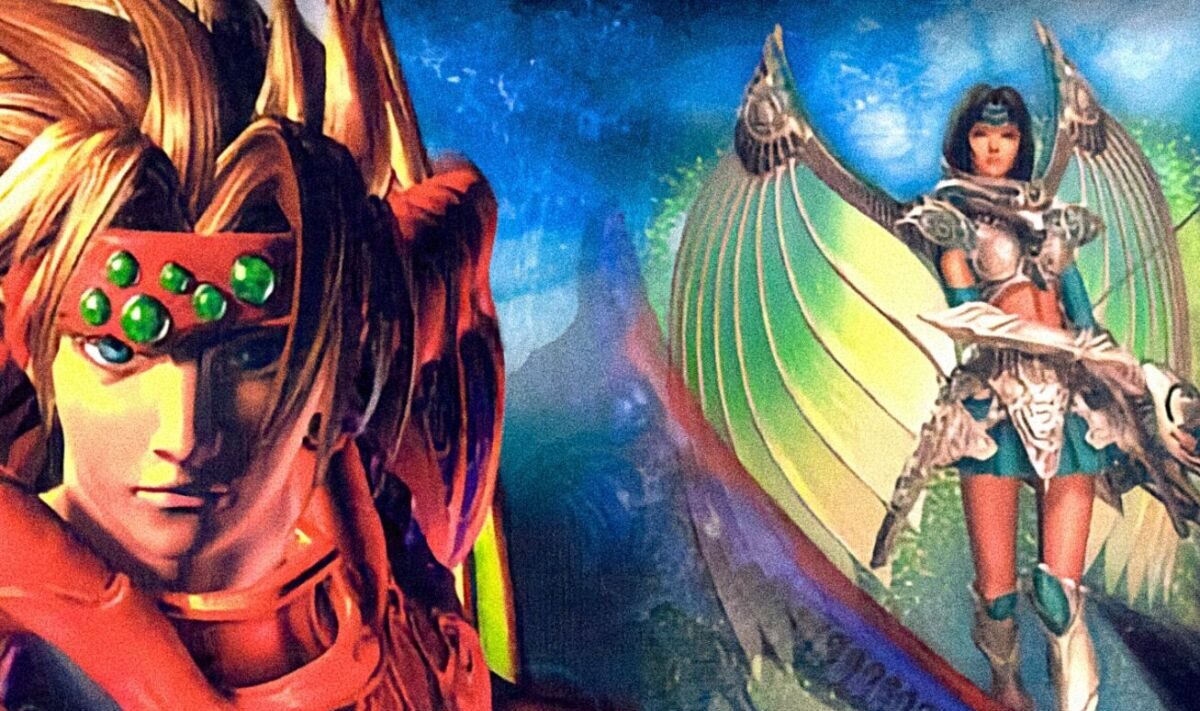
Developer: Sony
Publisher: Sony
At this point, you can see just how massively packed for RPGs the PlayStation was between 1999 and 2001. Players had more choices than ever before, and even Sony saw some serious potential in the genre when they developed and published The Legend of Dragoon as a direct competitor to Square’s Final Fantasy series.
Clearly a lot of time and money went into the production of this game, which emphasizes a massive, time-consuming quest, beautiful graphics, and gorgeous cutscenes and music. There’s something pretty grand about all of this right out of the gate, and while it’s obviously a little aged around the edges today, it’s still easy to see how wild this would’ve been back in 1999.
Playing as lead protagonist Dart, players who prefer a medieval fantasy world for their RPGs will be very pleased with what The Legend of Dragoon brings to the table. You’re also going to love the CGI cutscenes and challenging, complex, and above all else fun gameplay and combat system.
Legend of Dragoon didn’t quite unseat Final Fantasy, but it gave players yet another exceptional RPG that is a lot better than what critics gave it credit for.
10. Parasite Eve

Developer: Square
Publisher: Square
Another extraordinary variant on the classic RPG formula from Square. And by extraordinary, we mean actually extraordinary — this is one weird, surreal RPG.
Parasite Eve and its story of a young police officer named Aya getting caught up in some serious body horror business has been called a compromise between Final Fantasy and Resident Evil. While it’s true that the game combines RPG characteristics with some of the grisliest survival horror witnessed on the PS1, because holy shit does this game have an opening animation for you, it would be categorically untrue to even suggest that Parasite Eve is merely a collection of parts from other games.
With a strange, mysterious connection to the mitochondria that’s turning residents of New York City into horrible mutants, Aya has a difficult task in front of her. You’ll find yourself drawn to learning more and more, while also enjoying the combat that allows for freedom of movement with turn-based strategy. Parasite Eve got a good-not-great sequel in 1999, followed by a third and presumably final bonkers installment in 2010 for the PSP that many people don’t even know happened.
9. Lunar 2: Eternal Blue Complete

Developer: Game Arts
Publisher: Working Designs
After a successful remake of Lunar: Silver Star Story for the PS1, Working Designs set their sights on giving the same elaborate treatment to its sequel.
Lunar 2: Eternal Blue features more of the same humor Working Designs loved to put in their localization efforts, which might get a little tiresome at times for some, but you can’t deny the game looks, sounds, and plays beautifully. Providing considerably more challenge than the previous installment, with a much bigger story featuring protagonists Hiro and Lucia, whose adventures will encompass centuries of lore and even harken back to characters from the first game, everything about Eternal Blue feels much more expansive than its old-school exterior might suggest.
Lunar 2: Eternal Blue Complete is still very much an old-fashioned RPG, given that it was originally made for the Sega CD several years earlier, but exceptional gameplay mechanics, charming heroes and distinctive villains, and some extremely difficult dungeons all combine with lovely sprites to create a definitive example of RPG comfort food.
8. Final Fantasy VIII
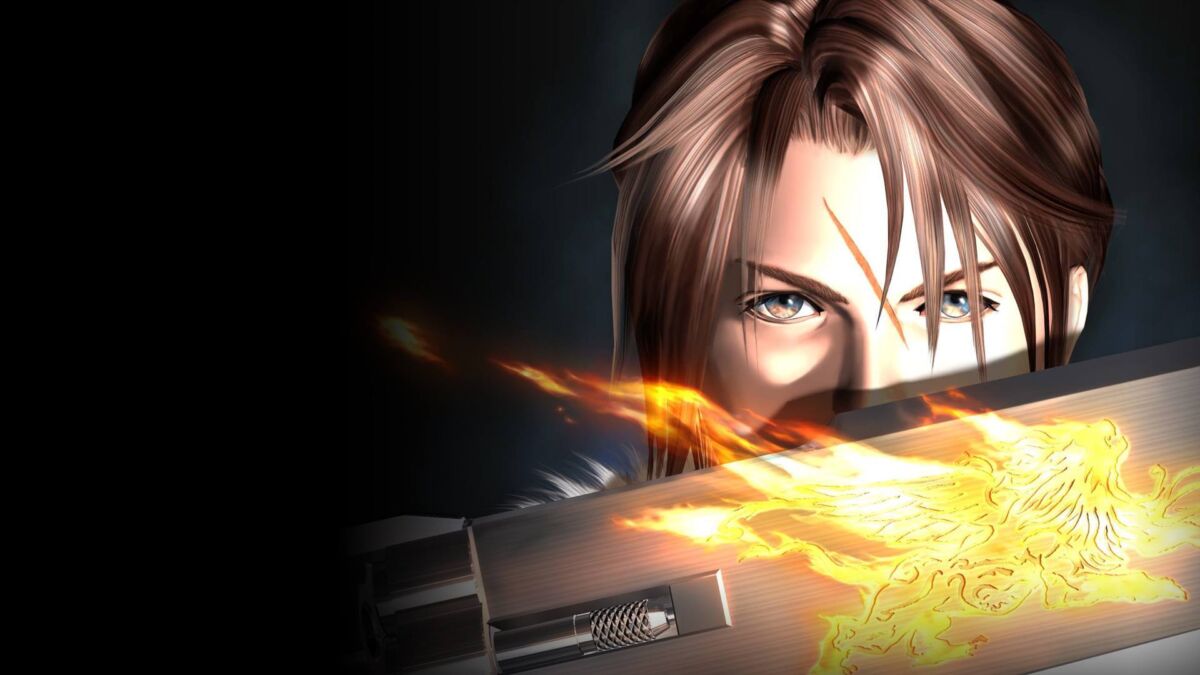
Developer: Square
Publisher: Square
Our first mainline Final Fantasy game had the unenviable task of following up a game-changing blockbuster called Final Fantasy VII. Square went for broke on their biggest JRPG to that point, with a story of love, war, and time travel that certainly felt like an even bigger universe and story than its predecessors. While some elements of the game can be frustrating, and while some found the game to be just too far removed from anything resembling Final Fantasy up to that point, there’s no question that Final Fantasy VIII is the sort of game you’ll have to experience for yourself.
Telling the story of a young child soldier named Squall, Final Fantasy 8 once again offers a plethora of strong protagonists and antagonists in a truly immersive, lush world. The junction mechanics of the combat system can take a moment to get used to. The game in general has a steeper early learning curve than you might be expecting, with the actual role-playing elements themselves being a little undercooked at times.
Even so, if you’re still playing Final Fantasy VII after the first mission, and after meeting Rinoa, Quistis, Zell, and Seifer, then it’s safe to say you’re going to be there to the end.
7. Vagrant Story
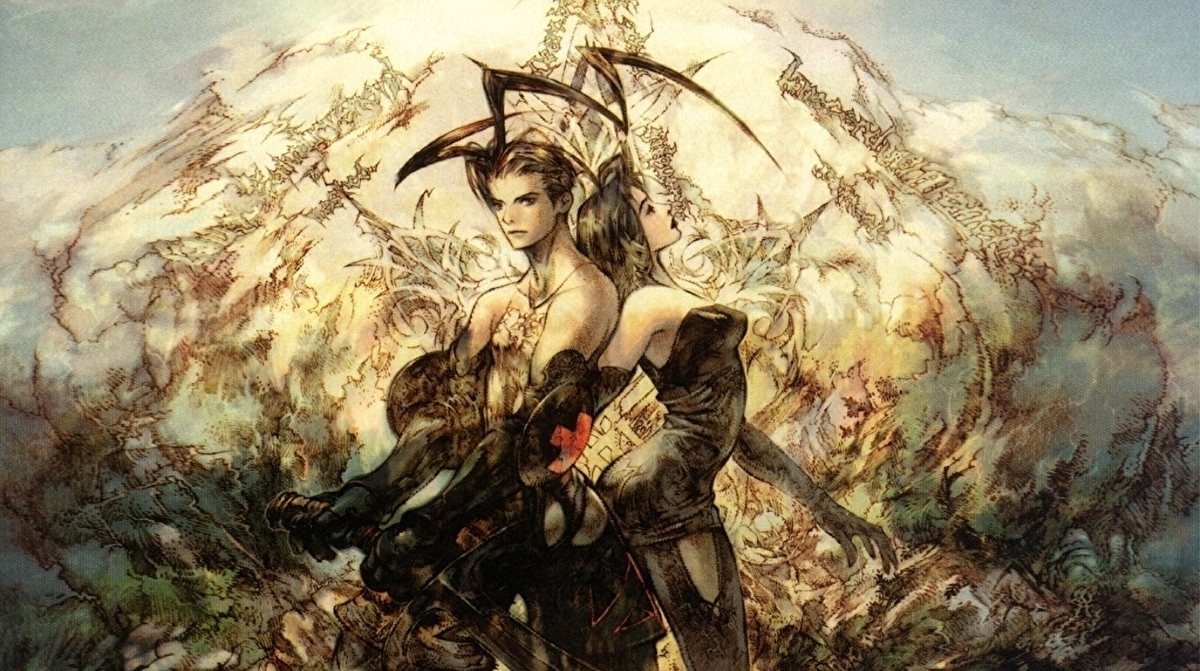
Developer: Square
Publisher: Square
The shadow of Square in the PS1 era continues to loom as we look at yet another release from this prolific period in the form of Vagrant Story. An action RPG that never really received its full due, the game received good reviews and sold well in its first couple of months, but it was also a game some found too different from the genre norms to enjoy. Vagrant Story was also overshadowed by other titles, including several from its own developer and publisher. It’s a true cult favorite that didn’t deserve to get lost in the shuffle.
Why do some consider Vagrant Story to be among the best PS1 RPGs of all time? There’s several reasons, ranging from its awesome late 90s Square soundtrack, to its complex story involving magic and espionage, to its sometimes absurd levels of difficulty, the game certainly speaks to a certain breed of fans. The weapon customization options for lead character Ashley Riot alone can keep you occupied for dozens of hours and several playthroughs.
Vagrant Story is a seriously innovative, aesthetically clever, and deeply addictive dungeon crawler that is long overdue for some kind of remaster.
6. Xenogears
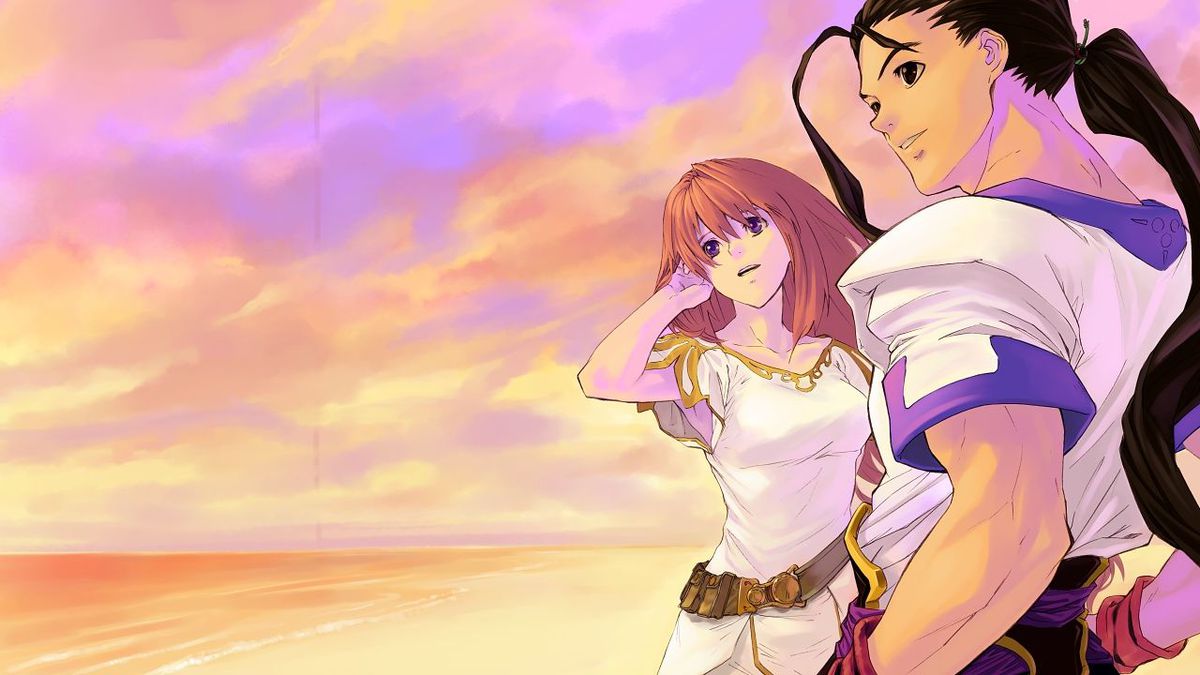
Developer: Square
Publisher: Square
Xenogears wants to see just how much text you’re willing to read in an RPG. For primarily this reason, it’s easy to see why this overwhelmingly dense RPG about killing gods, Jungian psychology, and giant robots doesn’t quite work for everyone.
No game in the PS1 era has a narrative quite like Xenogears, which begins with the adopted Fei Fong Wong in the village of Lahan and ends with you trying to prove that love can make you independent of God himself. Xenogears has touches of fantasy RPG mechanics with a bizarre story seeped in political intrigue and religious confrontation. So prevalent are this game’s religious themes, it almost didn’t get a release outside of Japan.
But we’re glad it did, with a challenging-but-satisfying ATB combat system, unforgettable characters, and one of the most creative, if not fully realized, stories ever crafted for an RPG. Oh, and the soundtrack is filled with immersive bangers. Xenogears has its shortcomings, but those pale in comparison to its ambition and how extraordinarily close it gets to perfection for something so deeply freaking weird.
5. Chrono Cross
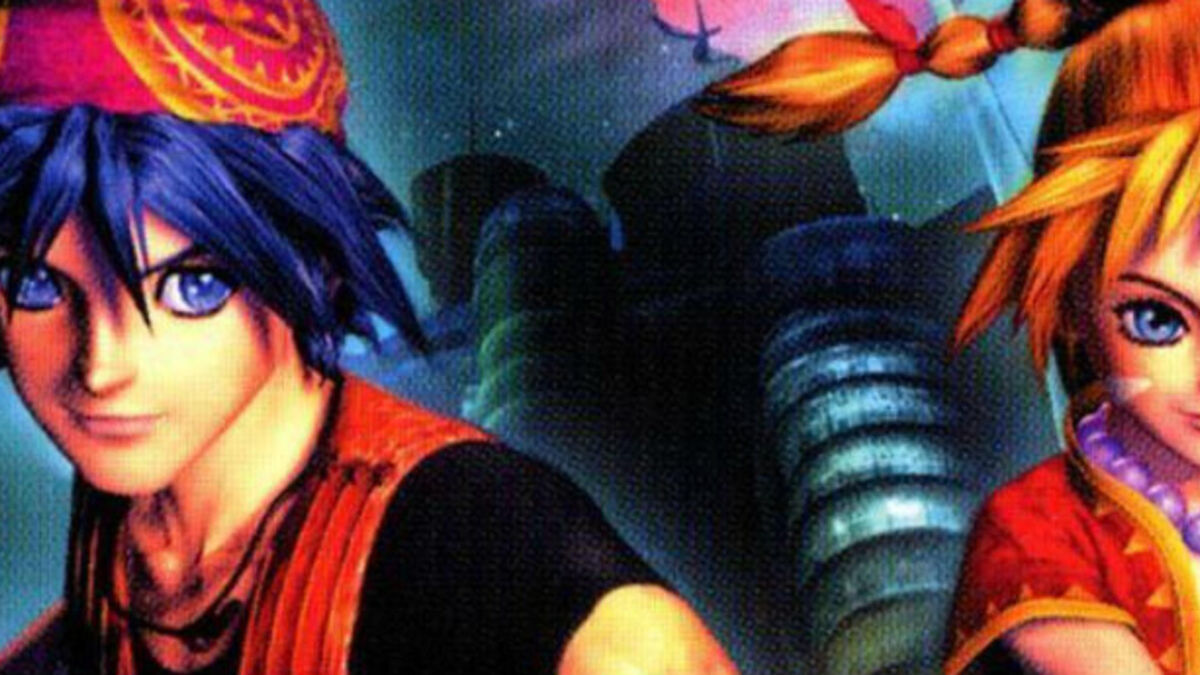
Developer: Square
Publisher: Square
Chrono Cross is a truly impressive effort to do something different with a follow-up. With some surprisingly deep and important connections to Chrono Trigger, this tale centers on a young boy named Serge who finds themselves slipping into an alternate dimension where he died long ago. It’s a nice hook for an adventure, and you can be sure the further explorations of Chrono Cross’ plot lives up to the promise.
Of course, the main marketing point for Chrono Cross was the ability to add over 40 characters to your party. Simply collecting them all is a game unto itself, but if you don’t particularly care about doing that, you’re still talking about an RPG with an excellent story of parallel dimensions, a challenging elemental-based combat system, and the unique design touch of a stamina bar that factors heavily into your strategies. Chrono Cross has a lot of stuff going on
If you want to play Chrono Cross today, you may be tempted to go for the version that finally brings Chrono Cross together with the 1996 Satellaview text adventure game Radical Dreamers. Unfortunately, the port itself leaves a lot to be desired, but if you want to connect the dots as much as humanly possible without dipping into emulation, it’s perhaps your best bet.
4. Final Fantasy Tactics

Publisher: Square
Developer: Square
While Final Fantasy Tactics benefitted slightly from coming out after and being slightly connected to Final Fantasy VII, the game itself is why it was an immediate and resounding hit with a growing number of RPG fans outside of Japan. Tactics provided players with the best of everything one expects from a tactical RPG, including the bottomless complexities of managing your army in a turbulent world of war and fortune. Combat is immediately accessible yet filled with enough depth to keep you challenged for dozens of hours. This is a game that got many into this RPG subgenre to begin with.
There’s also a deeper story here than in any tactical RPGs, with players assuming the role of Ramza Beoulve during the Lion War, an event which will eventually include your local church trying to bring back what they at least think is God. It’s heady stuff in the best Final Fantasy narrative tradition possible, but there’s still a fantastic combat system, deep player customization potential, and a variety of different approaches to the entire game itself.
Final Fantasy Tactics for some is the best Final Fantasy game of all time, and for others there are few tactical RPGs that equal its intricacies and idiosyncracies.
3. Suikoden II
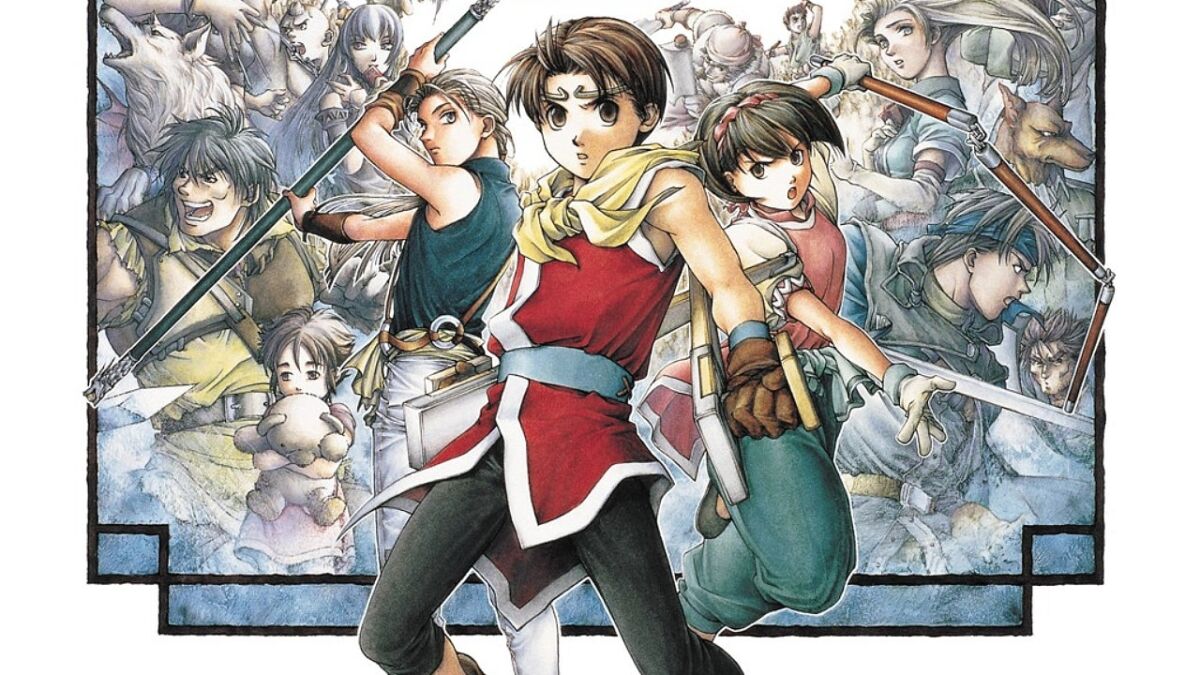
Publisher: Konami
Developer: Konami
Suikoden II suffered a bit in the wake of Final Fantasy VII’s release and almost unbelievable mainstream cucess. To the point where everything from its story to its graphics were sometimes unfavorably compared to what is actually a very different RPG. Eiyuden Chronicle: Hundred Heroes will have to do for now, but we really wish this Konami franchise would make a big comeback with a new mainline game.
Suikoden II for many is the ultimate unsung RPG hero of the PS1 era, and it’s hard to argue with that. The characters and story alone, with 107 recruitable characters across a plot that covers a brutal and bloody war between two nations, makes Suikoden II a lengthy playing experience. The story involves controlling the protagonist Riou, who escapes from a murder plot with friend Jowy and adoptive sister Nanami. However, the war will soon put these three characters on a dark, complicated road to an incredible showdown between two friends whose conclusion is dictated by your choices.
Suikoden II also has everything you’d ever want from a combat system, with traditional turn-based RPG battles alongside one-on-one duels or massive battles between large-scale armies. This is a classic in the genre and absolutely essential playing for newcomers. Maybe not physically, though.
2. Final Fantasy VII
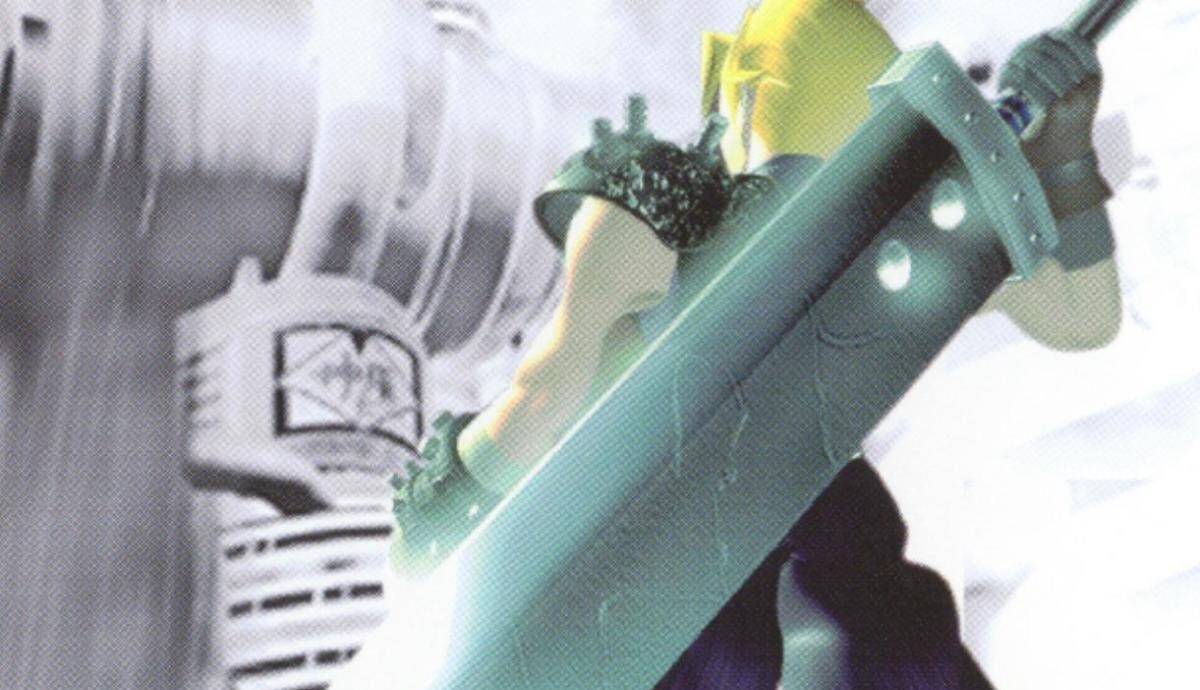
Developer: Square
Publisher: Square
Final Fantasy VII scarcely needs an introduction. One of the most significant releases in the entire PS1 library, the game was then and now considered a major turning point in Sony’s rapid rise to the top of the console mountain.
The story of Cloud Strife, his super haunted past, and the friends he made along the way is still considered one of the best RPG narratives ever committed to a game, with strong themes that rallied against corporations and environmental destruction, yet didn’t lose humor or characters that made everyone you met in this game a little special. Final Fantasy VII proved the audience for RPGs beyond Japan, and did so by adding literally hundreds of thousands of fans to its ranks.
And the thing is, from its materia-based magic system, to its iconic visuals and suitably emotional, evocative soundtrack, this is another classic that hasn’t aged where it really counts. Even if you think the graphics are a little too blocky for modern tastes, it nevertheless amounts to an aesthetic and visual tone that draws you in every time. Characters and story, as well as a combat system that’s fun as it is difficult-in-places, will win out over almost anything else. Final Fantasy VII proves that because people are still playing the original today, even with a big, shiny trilogy of remakes currently underway.
1. Final Fantasy IX
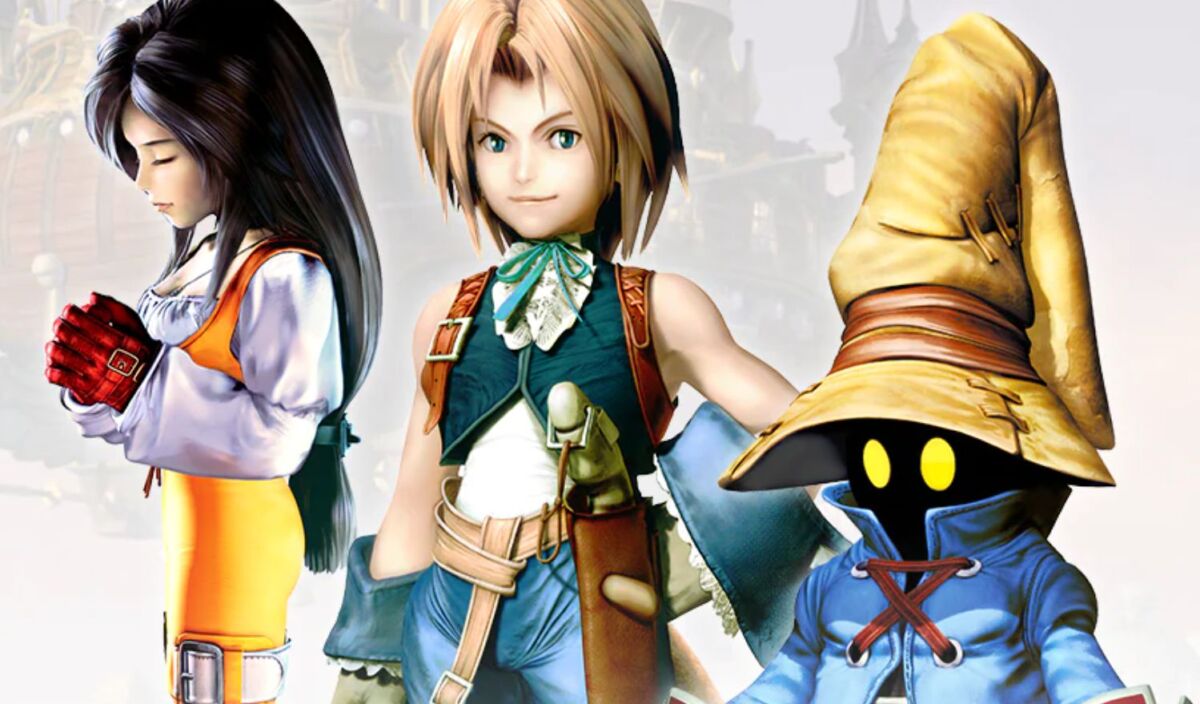
Developer: Square
Publisher: Square
The development team for Final Fantasy IX, led by director Hiroyuki Ito, had to cover a lot of ground to cement the end of a truly remarkable era in spectacular fashion. With a story set in a world in which technology and magic (and some serious steampunk vibes) cooperate in a manner never explored in this fashion in a Final Fantasy release, the game succeeded brilliantly. Final Fantasy IX brings the PS1 RPG run to a delirious, satisfying, and bittersweet conclusion.
The winning formula for Final Fantasy IX comes down to its decision to stick with a more traditional job class system and ATB foundation for the combat, but once again the developers found ways to be creative within the details of those features. Your equipment is what helps you learn various abilities, and there are a lot of different ways to use that to build your ideal party.
Finally, the game’s beautiful art style is perfectly suited to its endlessly likable characters, including Zidane the thief, Garnet the princess, Vivi the black mage, and of course everyone’s favorite stressed out captain of the guard in Steiner. Final Fantasy IX opted for something breezier, yet with all of the deeper possibilities you’d come to expect from a Final Fantasy game, and while its predecessors might get more attention, this is the best PS1 RPG ever as far as we’re concerned.
READ NEXT: 20 Best PS1 Games of All Time
Some of the coverage you find on Cultured Vultures contains affiliate links, which provide us with small commissions based on purchases made from visiting our site.
